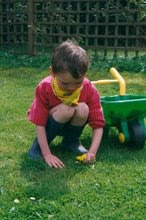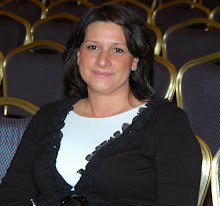 If we are, are we ready to see it, acknowledge it and work with it?
If we are, are we ready to see it, acknowledge it and work with it?Do we need a Conductive Pedagogical Renaissance?
What is Renaissance?
“The Renaissance was a cultural movement that profoundly affected European intellectual life in the early modern period. Beginning in Italy, and spreading to the rest of Europe by the 16th century, its influence affected literature, philosophy, art, politics, science, religion, and other aspects of intellectual inquiry. Renaissance scholars employed the humanist method in study, and searched for realism and human emotion in art.” http://en.wikipedia.org/wiki/Renaissance
Are we ready for the rebirth of and the revival of Petö’s Conductive Pedagogy?
I first mentioned this in one of my advertised training courses on 16th May 2009 'Conductive Pedagogical Renaissance series’ on my sourcesense blog.
Petö was ahead of his time in many respects and he still is… He had a single focus and that was, to create a system, which shifted the already existing paradigm about disability, especially about motor impairment.
It happened at a time when everybody was in survival mode after the Second World War.
Petö had a great understanding about human beings and about the ‘system in general’, which was created for people in the new era after World War ll. They had to accept it as a norm.
He deeply understood and worked with the laws of creation and manifestation.
He was able to see the powers, that each human being possess, whether they are aware of it or not and whether they are labelled as disabled or not.
On my first lecture with Dr. Mária Hári, she told us that always ask permission from everyone, even from a baby when you want to facilitate them at the first ‘examination’, which we call initial consultation or observation in Conductive Education.
Conductors do not examine people. I only used the word to highlight the importance of the difference.
He was able to see the powers, that each human being possess, whether they are aware of it or not and whether they are labelled as disabled or not.
On my first lecture with Dr. Mária Hári, she told us that always ask permission from everyone, even from a baby when you want to facilitate them at the first ‘examination’, which we call initial consultation or observation in Conductive Education.
Conductors do not examine people. I only used the word to highlight the importance of the difference.
What does the first remark of her first lecture tell you? Think about it!
It told me, that when we start our work with anyone (not just at the initial consultation, but always), we must show and have the highest respect and regard for them.
How many people who are working with Petö’s Conductive Pedagogy in the world understood this deeply and apply it as a norm every day in their work?
How many of us realised that the removing of Gill Maguire from the National Library of Conductive Education put the heritage of the work outside of Hungary to a standstill?
How many of us are truly grateful (every time when we open her blog) of the fact that she is still providing us with essential information about Conductive Education and related issues?
How many of us would be prepared to be part of creating a more formal venture in our history for the preservation of Gill’s and Andrews’s knowledge and experience?
It told me, that when we start our work with anyone (not just at the initial consultation, but always), we must show and have the highest respect and regard for them.
How many people who are working with Petö’s Conductive Pedagogy in the world understood this deeply and apply it as a norm every day in their work?
How many of us realised that the removing of Gill Maguire from the National Library of Conductive Education put the heritage of the work outside of Hungary to a standstill?
How many of us are truly grateful (every time when we open her blog) of the fact that she is still providing us with essential information about Conductive Education and related issues?
How many of us would be prepared to be part of creating a more formal venture in our history for the preservation of Gill’s and Andrews’s knowledge and experience?
For sometime I have been thinking long and hard about these two people who invested their best in establishing something very unique and valuable.
If we don’t look after this still available pool of knowledge and experience what are we hoping to create for the future?
How can we, who are working with Petö’s Conductive Pedagogy expect that we will be looked after if we miss this opportunity?
In all sustainable, beautiful, native cultures where people understand about life and see it as a precious commodity, they respect and love their ‘elders’ the most experienced.
If we don’t look after this still available pool of knowledge and experience what are we hoping to create for the future?
How can we, who are working with Petö’s Conductive Pedagogy expect that we will be looked after if we miss this opportunity?
In all sustainable, beautiful, native cultures where people understand about life and see it as a precious commodity, they respect and love their ‘elders’ the most experienced.
They don’t brush them aside and believe that they have no more use anymore.
I am proposing to set up a contribution project for our heritage and invite these two individuals, Gill and Andrew to help us as long as they can.
We can call it the Conductive Education Information Project.
The mission of the project is to be a focal point of reliable and accurate information about the system of Conductive Education.
The purpose of the project is to provide a vehicle and a source for researchers, the media, conductive education students, conductors, students of the rehabilitation and special needs professions, health care professionals, educationalists, parents, carers, projects, Parkinson’s, Multiple Sclerosis Societies etc., education authorities, health authorities and the government.
The Conductive Education Information Project endeavours to steer the worldwide conductive movement towards the highest quality and unified understanding of Petö’s Conducive Pedagogy.
Every project working with Conductive Education could budget for it within their means, (doesn’t matter how little it is), they can do individual fundraisings for donations towards it, and we all can approach and invite people to donate even if they are not part of Conductive Education. Just a little awareness and some good intention could create something remarkable for our future.
We can call it the Conductive Education Information Project.
The mission of the project is to be a focal point of reliable and accurate information about the system of Conductive Education.
The purpose of the project is to provide a vehicle and a source for researchers, the media, conductive education students, conductors, students of the rehabilitation and special needs professions, health care professionals, educationalists, parents, carers, projects, Parkinson’s, Multiple Sclerosis Societies etc., education authorities, health authorities and the government.
The Conductive Education Information Project endeavours to steer the worldwide conductive movement towards the highest quality and unified understanding of Petö’s Conducive Pedagogy.
Every project working with Conductive Education could budget for it within their means, (doesn’t matter how little it is), they can do individual fundraisings for donations towards it, and we all can approach and invite people to donate even if they are not part of Conductive Education. Just a little awareness and some good intention could create something remarkable for our future.
I believe that this is important for all of us.
If you beleive that it is important to you to take this further, please comment or contact me at judit.szathmary@virgin.net.
References:












No comments:
Post a Comment